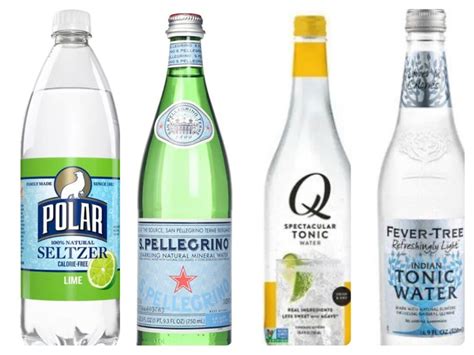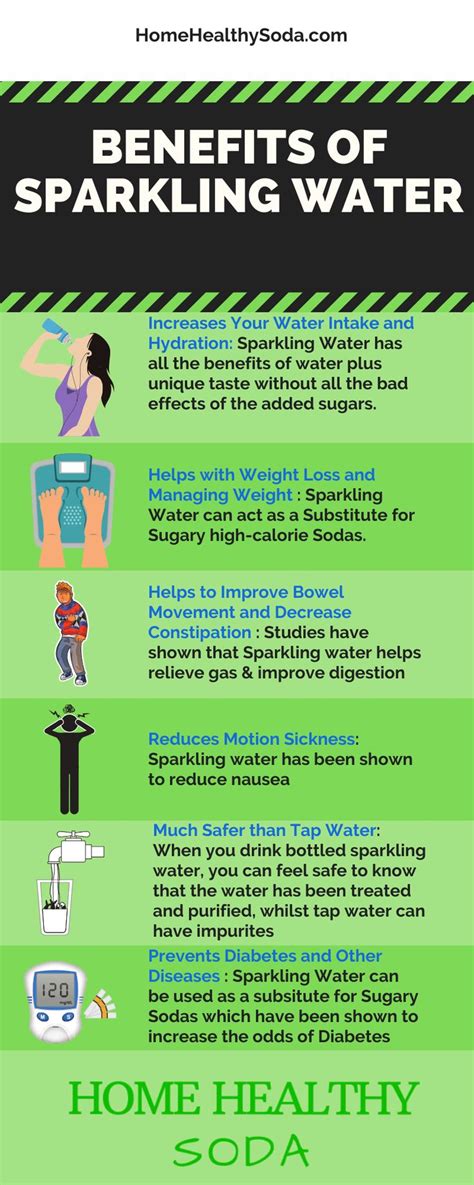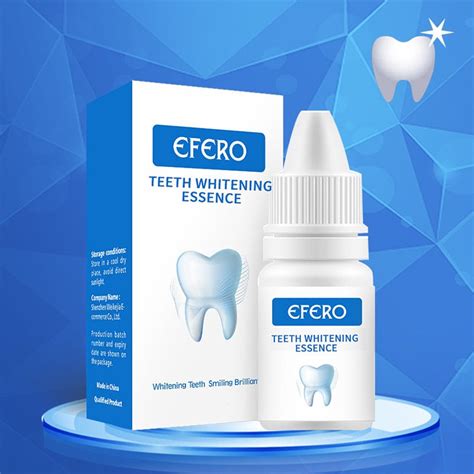Intro
The debate about the health effects of sparkling water has been ongoing for several years, with some arguing that it's a healthier alternative to soda, while others claim that it's just as bad. As the popularity of sparkling water continues to grow, it's essential to examine the facts and determine whether sparkling water is indeed bad for you. With the rise of wellness trends and the increasing demand for low-calorie, low-sugar beverages, sparkling water has become a staple in many households. However, it's crucial to consider the potential risks associated with consuming sparkling water regularly.
The appeal of sparkling water lies in its bubbly texture and refreshing taste, making it a popular choice for those looking to stay hydrated without the added sugars found in soda. Moreover, sparkling water is often infused with natural flavors and essences, which can make it a more exciting and healthier alternative to plain water. Nevertheless, there are concerns about the potential health effects of sparkling water, particularly in regards to tooth decay, bone health, and digestive issues. As we delve into the world of sparkling water, it's essential to separate fact from fiction and explore the scientific evidence behind these claims.
Sparkling water has become a cultural phenomenon, with many celebrities and influencers endorsing various brands and flavors. The market for sparkling water is projected to continue growing, with sales expected to reach billions of dollars in the next few years. As the demand for sparkling water increases, it's crucial to examine the potential risks and benefits associated with its consumption. From the impact on oral health to the effects on digestive systems, we'll explore the latest research and expert opinions to determine whether sparkling water is indeed bad for you. With the help of scientific studies and expert insights, we'll navigate the complex world of sparkling water and provide you with the information you need to make informed decisions about your health.
Introduction to Sparkling Water

Types of Sparkling Water
There are several types of sparkling water, each with its unique characteristics and benefits. Some of the most common types of sparkling water include: * Mineral water: This type of water is naturally carbonated and contains minerals and electrolytes that can provide health benefits. * Seltzer water: This type of water is artificially carbonated and does not contain any added minerals or electrolytes. * Tonic water: This type of water is flavored with quinine and other ingredients, making it a popular choice for those looking for a unique taste experience. * Flavored sparkling water: This type of water is infused with natural flavors and essences, making it a popular choice for those looking for a healthier alternative to soda.The Benefits of Sparkling Water

The Risks of Sparkling Water
While sparkling water can have several benefits, there are also some risks associated with its consumption. Some of the most significant risks include: * Tooth decay: The acidity in sparkling water can erode tooth enamel, making teeth more susceptible to decay. * Bone health: The carbonation in sparkling water can interfere with calcium absorption, which can lead to weakened bones. * Digestive issues: The carbonation in sparkling water can cause bloating, gas, and discomfort in some individuals.The Impact of Sparkling Water on Oral Health

Tips for Drinking Sparkling Water
If you enjoy drinking sparkling water, there are several tips you can follow to minimize the risks associated with its consumption: * Drink sparkling water in moderation: Limit your consumption of sparkling water to avoid excessive acidity and carbonation. * Use a straw: Drinking sparkling water through a straw can help reduce contact between the water and your teeth. * Rinse your mouth: After drinking sparkling water, rinse your mouth with plain water to help neutralize acids and remove any remaining carbonation. * Practice good oral hygiene: Brush and floss your teeth regularly, and visit the dentist for regular check-ups to maintain good oral health.The Impact of Sparkling Water on Digestive Health

Managing Digestive Issues
If you experience digestive issues after drinking sparkling water, there are several steps you can take to manage your symptoms: * Reduce your consumption: Limit your consumption of sparkling water to avoid excessive carbonation and acidity. * Choose a different type of sparkling water: Some types of sparkling water, such as mineral water, may be less likely to cause digestive issues due to their natural ingredients and lower acidity levels. * Add a squeeze of lemon: Adding a squeeze of lemon to your sparkling water can help reduce acidity and alleviate digestive issues. * Consider a digestive enzyme: Taking a digestive enzyme supplement can help reduce symptoms of bloating, gas, and discomfort.Conclusion and Final Thoughts

We invite you to share your thoughts and experiences with sparkling water in the comments below. Have you noticed any benefits or drawbacks to drinking sparkling water? Do you have any favorite flavors or brands? Let's start a conversation and explore the world of sparkling water together!
Is sparkling water bad for your teeth?
+Yes, sparkling water can be bad for your teeth due to its acidity, which can erode tooth enamel and make teeth more susceptible to decay.
Can sparkling water help with digestion?
+Yes, sparkling water can help with digestion, as the carbonation can help relieve symptoms of bloating and gas. However, it's essential to listen to your body and adjust your consumption accordingly.
Is sparkling water a healthy alternative to soda?
+Yes, sparkling water can be a healthy alternative to soda, as it contains fewer calories and less sugar. However, it's essential to choose a sparkling water that is low in acidity and contains natural ingredients.
